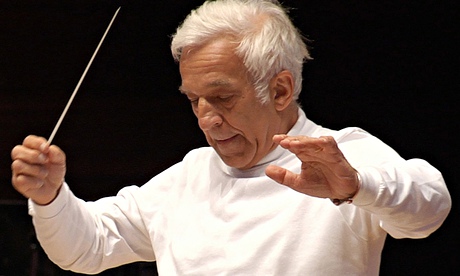
The London Chamber Orchestra has been an unassuming but popular fixture in the capital’s teeming musical life since 1921. A series of recent concerts at Cadogan Hall represents a conscious attempt to raise its profile, and this concert under Vladimir Ashkenazy, who is the LCO’s president, showed an ensemble which is well able to carve out a more ambitious niche.
It was perhaps foreseeable that the most consistently impressive musicianship came in Shostakovich’s so-called Chamber Symphony, Rudolf Barshai’s orchestration of the composer’s eighth string quartet, one of the defining Shostakovich works. Ashkenazy has this piece in his blood and the solemn and sustained fugato opening, followed by a frenzied allegro molto, showed conductor and players in compelling rapport. Barshai’s orchestration is a fine achievement, and Ashkenazy teased every rhythmic detail out of the piece, while the LCO’s playing of the final movement, with the spacious sweep of the violins against the dark intonings of the lower strings, delivered an authentic pulse of inner warmth beneath the music’s forbidding surface.
Earlier, Shostakovich’s two pieces for string octet, a boldly written score from his experimental period in the 1920s and also orchestrated by Barshai, had taxed the orchestra’s technique rather more, while at the start of the evening Ashkenazy’s shaping of Sibelius’s self-effacing and enigmatic three-movement Rakastava was oddly hesitant, though the delicately scored middle dance movement came off well.
The other main work, Elgar’s Cello Concerto, brought a London concerto debut for the young Russian cellist Alexey Stadler, as well as the evening’s only appearance by the LCO’s wind sections. Stadler started carefully, refusing to wear his heart on his sleeve, but his generally restrained reading had an unusually clear trajectory which was cumulatively very convincing and expressively played, with a fine range of tone. He had a good concertante rapport over dynamics with Ashkenazy, who took advantage of the reduced orchestral forces at his disposal to point up details in the score which are often drowned out.







